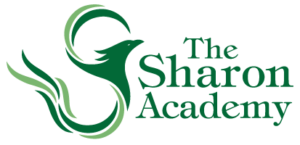Mathematics
In this Section |
The Sharon Academy math curriculum is designed for students to cultivate competency in math, appreciation for math, and growth through struggling with appropriate challenges. The goal of every mathematics course at TSA is to expose students to systematic thinking. Teaching styles include both direct instruction and inquiry or discovery methods. The TSA math program focuses on skill development and problem-solving. This involves a building block approach that includes mastering basic skills and logical mathematical processes. 9th grade students will enter either Algebra I or Geometry, depending on their previous work. Students move through Algebra I, Geometry, Algebra II, Precalculus, and Calculus. Students have opportunities to study Intro to Statistics after Algebra II and Advanced Topics/ Linear Algebra after Precalculus.
Common themes developed through the math curriculum include practiced collaboration, appropriate use of technology, reviewing old skills, problem solving, and learning from mistakes. Classes strive to connect topics with applications and scenarios that model real world situations with mathematics. Classroom practices are based on a discussion model, with whole class and small group problem solving throughout.
Algebra I
This class will start by reviewing such topics as the basic operations and properties over the real numbers. The course will then move to the expansion of familiar topics: evaluating expressions, solving one variable equations, and graphing the linear equation, then on to the introduction of quadratic equations factoring of polynomials and laws of exponents. Students will use a calculator and lab-type or open-ended type activities as part of their learning experience.
Geometry
The Geometry class will investigate the properties of and relationships between two and three-dimensional objects and will strongly emphasize logical thinking in a spatial context. The topics studied will include: the properties of angles and parallel lines; the areas of triangles, quadrilaterals and regular polygons; the Pythagorean Theorem and right triangle trigonometry; similarity and proportional reasoning; geometric probability models; and the volume and surface area of prisms, cylinders, pyramids, cones and spheres. Algebra 1 is a prerequisite for this class and concepts from that class will regularly support the problem solving that the students will do in Geometry.
Algebra II
The Algebra ll course is a foundation for Precalculus and Calculus. Becoming competent in algebraic logic and operations is the heart of what we do in this course, therefore focus is placed on a traditional treatment of the material. The topics studied will include: sets of numbers; graphing and solving problems with linear, quadratic, square root, cubic, rational, exponential and logarithmic functions; the rules of exponents (including fractional exponents) and logarithms; arithmetic and geometric sequences; solving systems of equalities and inequalities. A common theme will be to use graphs, tables and equations to solve problems posed in a given context. Algebra 1 and Geometry are prerequisites for this class.
Pre-calculus
Students taking pre-calculus will learn the concepts and build the mathematical skills necessary to continue on to calculus. Prerequisites for the course are Algebra II and Geometry. Topics covered will include: polynomial functions, logarithmic and exponential functions, complex numbers, trigonometric functions and identities, triangle trigonometry and an introduction to limits. Students will be assessed using homework, quizzes, exams, and projects. Technology, including a graphing calculator and occasional computer applications, is used to aid in visualizing principles and solving problems.
Calculus
Topics covered will include: review of limits; review of the nature of different types of functions; differential calculus; applications of derivatives; integral calculus; applications of integrals; and topics beyond calculus, all in one variable. The derivative is built from students’ understanding of limits developed in Pre-calculus. The integral is developed from an understanding of differentials and anti-derivatives. Students need strong facility with polynomial, logarithmic, exponential, trigonometric and rational functions and have an opportunity to review these. Students taking calculus will develop the skills necessary for success in college intro to calculus or other higher level college math classes. Student performance will be assessed through quizzes, tests, skill drills, and projects.
Introduction to Statistics
The Statistics class will investigate the mathematics involved in making sense of much of the data that people in modern societies find themselves immersed in and the context for the course will regularly involve real world applications. The topics will include: measures of central tendency, interpretation of graphs, linear correlation and lines of best fit, sampling and the law of large numbers, confidence intervals, combinations and permutations, linear regression and median-median lines, area models of probability, and simple statistical testing. Algebra 1 and Geometry are prerequisites for this class.
Advanced Math/Linear Algebra (offered every other year)
This course is designed for strong, accelerated math students and will provide exposure to a variety of advanced math topics that are not addressed elsewhere in the TSA math curriculum. The course is academically quite rigorous and requires significant student involvement in the discussion of problem solving techniques during every class period. Topics covered during the course include analytic geometry of conic sections, vectors and matrices, sequences and series, polar coordinates & complex numbers and linear algebra. Several projects will be completed, specifically emphasizing communication of a detailed, technical topic to a more general audience. While some concepts from Calculus could be useful, the prerequisite for this course is Pre-calculus.
Revised September 2017
